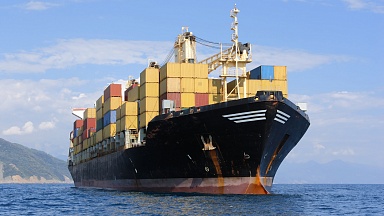This is unlikely to change, even if Suez Canal transits resume, according to Alphaliner analyst Jan Tiedemann.
He told the Korea Ocean Business Corporation’s recent maritime conference that this deployment had held off more vessel supply and suggested that liner operators should continue sailing round the Cape of Good Hope, if possible.
He said: «I think shipping companies will stick to the route as long as possible. The Cape of Good Hope benefits shipping companies, as it averts the current oversupply.»
To avoid Houthi attacks in the Red Sea, mainline operators have been rerouting Asia-Europe services round the Cape of Good Hope and Mr Tiedemann predicted they would not be able to return to the Suez Canal until 2026 — and even if they did, they would not operate their container fleets in the same way as before.
Due to the crisis, the operating period of Asia-Europe routes has increased from 12 weeks to 14 weeks, due to the detour round the Cape, and the number of vessels deployed increased accordingly.
According to Alphaliner’s analysis, the container fleet on the Asia-Europe route grew about 16%, while there was a 4%-5% decrease in supply across the entire global shipping market.
Mr Tiedemann added: «Shipping lines won’t reduce their fleets operating on the Asia-Europe route to fewer than 13 ships, even if Suez transits resume. They’ll try to ease the severe oversupply market by adding one more ship compared with before the Red Sea crisis.»
Record newbuilding orders during the Covid-19 pandemic and this year means relentless newbuilding deliveries in the short term. Alphaliner’s statistics show that, in September, the global container fleet reached a record high, of 7,073 ships for 30.65m teu. This is an increase of more than 10% on a year ago.
Current orders for newbuildings represent 7.47m teu, around 25% of the active fleet.



